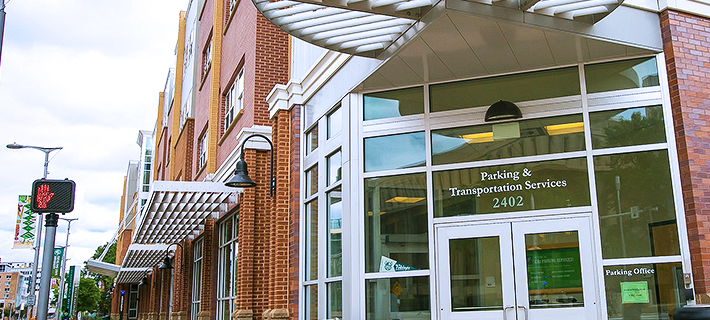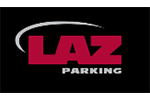Parking Partnership FAQ

Upon completion of an agreement with the selected consotium, Cleveland State will undertake a series of activities to ensure a successful transition. The following FAQ's provide specific strategies through which CSU will accomplish these goals, if an agreement is executed. The information below reflects the current state of the project and will be updated on an as-needed basis. After reviewing this information, should you wish to provide feedback or ask a question, please utilize the "Ask a Question" link on the left side of the screen.
NOVEMBER 2017 Faq - town hall feedback
How will this deal impact safety and security? The Parking Operator will be required to ensure safety and security within the Parking System. They will be required to provide security equipment and meet prescribed standards for lighting, communications, etc. While CSU PD will continue to be the first responders, the Operator will also be required to develop a safety plan that will be reviewed and coordinated with the CSU police department. More details will be available once the RFP responses are received in March/April 2018.
What will the impact of the deal be on the current staff in the Parking Department? CSU is working with existing staff and HR Labor Relations to address employee concerns. Staff may be offered positions with the incoming Operator or be retained by the University. During this process, the proposers will identify their own staffing plans, including the utilization of students. Most private parking operators of university systems offer student employment opportunities and there is an expectation that student employment opportunities will still be available, but specifics will be confirmed via the procurement process.
Can you describe the potential changes in the rate structure and how will it be determined? CSU will retain full control of rates and charges under the Parking System Partnership. It is important to note that there is an expectation that the rate structures will continue to increase if parking is operated by the University or by a third party, primarily based on aging infrastructure and associated investment needs. In its resolution of September 29, 2017, the CSU Board of Trustees established the maximum allowable increases in rates and charges under the Parking System Partnership. To ensure the University understands the value range of the asset, proposers will be asked to propose the amount of their upfront payment on the basis of various rate adjustment scenarios. Detailed information about these scenarios will be available after the RFP is released. The University will set forth the maximum annual adjustment after reviewing price proposals for the CSU Parking System.
Why do we keep referencing Ohio State for this project? In 2012, in exchange for a $483 million upfront payment, Ohio State University signed a 50-year leasehold concession for its parking system with CampusParc, a consortium led by parking operator, LAZ. As a state precedent, the OSU agreement is frequently referenced with regard to the CSU initiative; however, CSU recognizes that there are significant differences in terms of the size and scale of the parking systems, and with regard to the condition of the assets and future investment requirements.
How will the campus keep control or oversight of the services offered? The Agreement requires that a Parking Advisory Council (PAC)* be formed by the University to provide input with respect to the operation and use of the parking system during the term of the agreement. The PAC, after consulting with appropriate University personnel and governance committees, will be responsible for approving any changes to rates, permit categories or parking spaces outside of the agreement, as requested by the Operator. The Agreement also requires the establishment of other CSU governance structures to address enforcement appeals and other issues that may arise. *Note: This will be a newly created committee, not the oversight of the current Parking Advisory Committee.
What does the University plan to do with the proceeds? In exchange for the rights contemplated in the Parking Partnership Agreement, the Operator will make an upfront payment to CSU. CSU has full discretion as to how to utilize these proceeds. While it is anticipated that the majority of the proceeds will be invested in the CSU endowment fund, it is important to note that some of the monies will be used for the defeasance of outstanding debt, estimated at around $28M. Reducing debt will strengthen the University's balance sheet and lower interest payments, further contributing to its financial health.
The University may also determine that there are special projects that merit immediate funding from the parking system proceeds. In such case, some of the proceeds may be directed for investment in capital improvements, scholarship programs, etc. The process for deciding how the parking system proceeds are best utilized is still under consideration by University leadership. The University is committed to a transparent and collaborative process. With the exception of requirements set forth in debt covenants, the University doesn't intend to commit any funds to any specific allocations until after a decision has been made to proceed with the deal. If the deal is successfully executed, the interest generated off of the proceeds invested in the endowment will support Academic Programming, Student Programming, Capital Infrastructure, and Campus Operational Support.
Will the parking inventory be maintained for CSU utilization? The Operator will be required to manage, operate and maintain the University's entire parking inventory, including the opening and closing of garages. With University approval, the Operator will have the ability to expand the inventory levels. Operator will also be required to design, build and finance improvements and upgrades of existing facilities. In addition, the university has committed 3,900 parking spaces as the minimum inventory threshold. Should the University decide to reduce the number of available spaces, it will need to compensate the Operator. It is important to note that CSU retains ownership of the entire Parking System (land and facilities) during the term of the Agreement.
SEPTEMBER 2017 fAq - PROJECT INFORMAITON
What is the Cleveland State University Strategic Parking Partnership Project? CSU is seeking to address near and long-term campus parking needs in order to enhance service, safety and security levels for students, faculty, staff and visitors. To this end, CSU is undertaking a competitive procurement to hire a private partner ("Concessionaire") to operate and maintain the parking system, as well as to design, build and finance specified parking system upgrades. The Concessionaire will modernize CSU's parking assets, as well as construct a new garage to accommodate the growing student population and high parking demand on campus.
What is the expected scope of services by the Concessionaire? The Concessionaire will assume obligations with respect to the operation, maintenance, management, regulatory compliance and future development of the Parking System, such as financing specified new fixed investments during the term of the contract and providing specified services. CSU will continue to own all parking assets and have final approval on setting parking rates.
Is CSU "privatizing" or "selling" its Parking System? The Strategic Parking Partnership does NOT involve the sale or privatization of parking facilities. CSU will continue to own the facilities, but certain rights and responsibilities (such as operating the System at prescribed levels) will be conveyed to the Concessionaire under a leasehold concession agreement.
Why is CSU undertaking this project? Given the budget challenges facing the state of Ohio and the prospect of continued flat-funding for higher education, the parking partnership will provide needed flexibility and resources to upgrade CSU's parking infrastructure, while also providing an additional income stream for helping fund important academic and student success initiatives. The University is assessing the feasibility of this project based on the recommendation contained in the recent report of the State of Ohio Higher Education Task Force on Affordability and Efficiency which recommended a review of Ohio public university income-producing assets.
What are the key objectives of the Partnership?
Key objectives for the University include the following:
- Asset Stewardship and Quality of Service: Maintain the parking system assets in accordance with optimal operating standards;
- Continuous Improvement: Continuously improve the quality of service and the parking experience for students, faculty, staff, and all CSU campus visitors, including the introduction of new parking and technologies;
- Safety: Provide safe, secure, efficient parking on campus.
What is the timeline for the Parking Partnership Project? In late 2016, CSU short-listed qualified bidders who will be eligible to participate in a competitive procurement to enter into a Parking Partnership Agreement with CSU. On September 29, 2017, the CSU Board of Trustees is expected to vote on providing the University with authorization to proceed with the Parking Partnership Project, subject to certain key considerations. Should the Board of Trustees approve the initiative, it is anticipated that the next phase of the competitive procurement process (Request for Proposals) will be launched in October 2017, with the goal of finalizing the process and executing the Partnership Agreement in 2018.
Who are the short-listed bidders? In 2016, CSU requested statements of qualification for the purpose of shortlisting Respondents that demonstrate the technical, financial and management capacity required to operate, maintain, expand and modernize the CSU Parking System under the terms of an anticipated leasehold concession. Short-listed bidders include (in alphabetical order):

- Publicly traded (NASDAQ) with a market cap of over $565M
- North America's leader in parking management, ground transportation and ancillary services;
- 4,200+ parking facilities containing over 2 million parking spaces in hundreds of cities across the U.S. and Canada;
- Port of Cleveland was included on team as tax-exempt conduit but has withdrawn

- Privately held provider of parking management, ground transportation and ancillary services;
- Founded in 1981, currently operates in 2,500 locations with nearly a million parking spaces.
- Merged with Indigo [formerly VINCI Park] in 2007, providing additional financial leverage.
- Indigo, headquartered in Paris, France, is the largest parking operator in the world with over 2.1 million parking spaces in 750 cities across 16 countries, and 19,000 employees.
- Operator of OSU (CampusParc)

- Privately held provider of parking management, ground transportation and ancillary services;
- Founded in 1962, operates approximately 3,400 parking facilities in more than 100 cities across the United States and Canada.
- In 2011, Impark was acquired by Ontario Teachers' Pension Plan ($171 billion in assets), which can offer financial backing. Teachers' has a history of large-scale investments that can exceed $1 billion.
How will the rights of students, faculty, workers and others be protected under the Parking Partnership Agreement? The Concessionaire will be obligated to operate and maintain the entire CSU parking system at levels prescribed by the University in the Agreement. Moreover, rate adjustments, privileges, fines and other factors will be regulated in the Partnership Agreement and subject to University oversight.